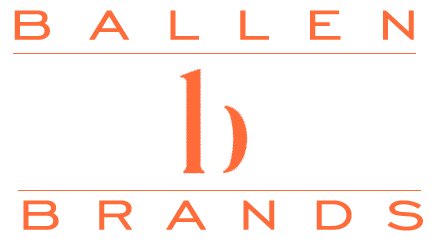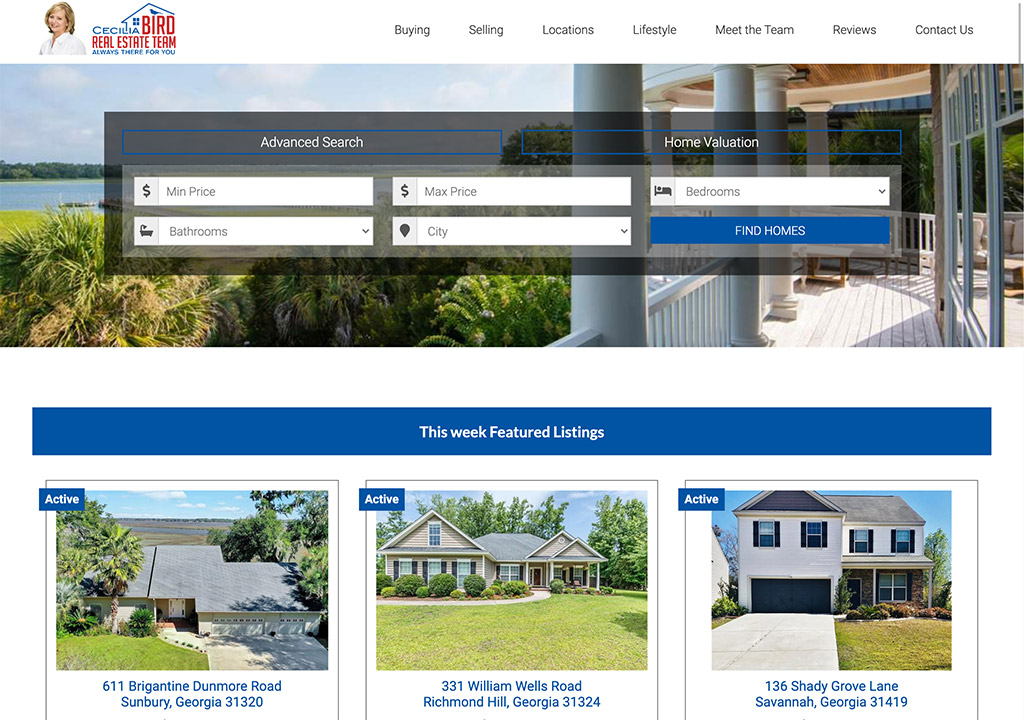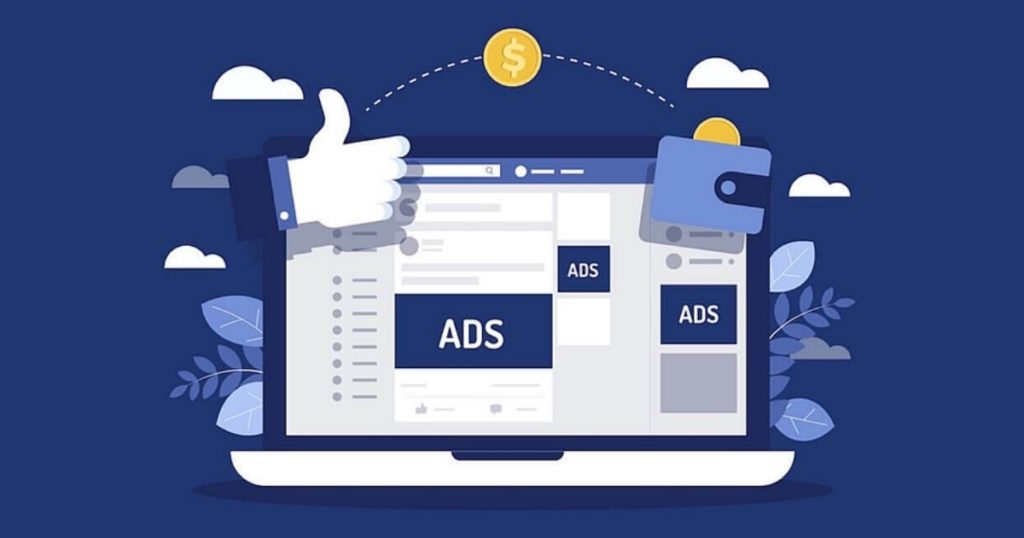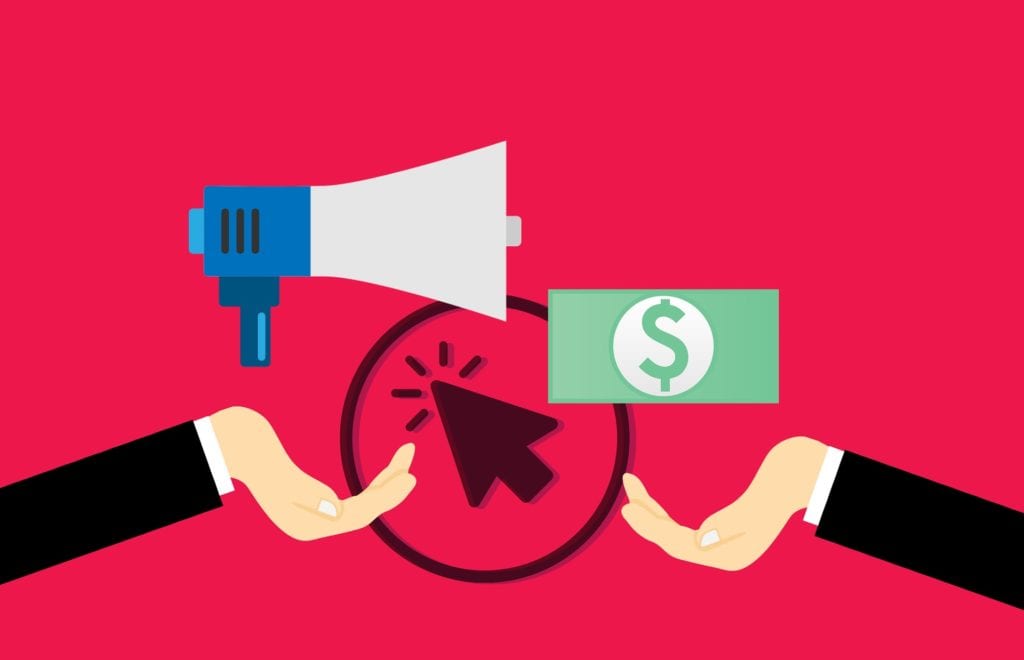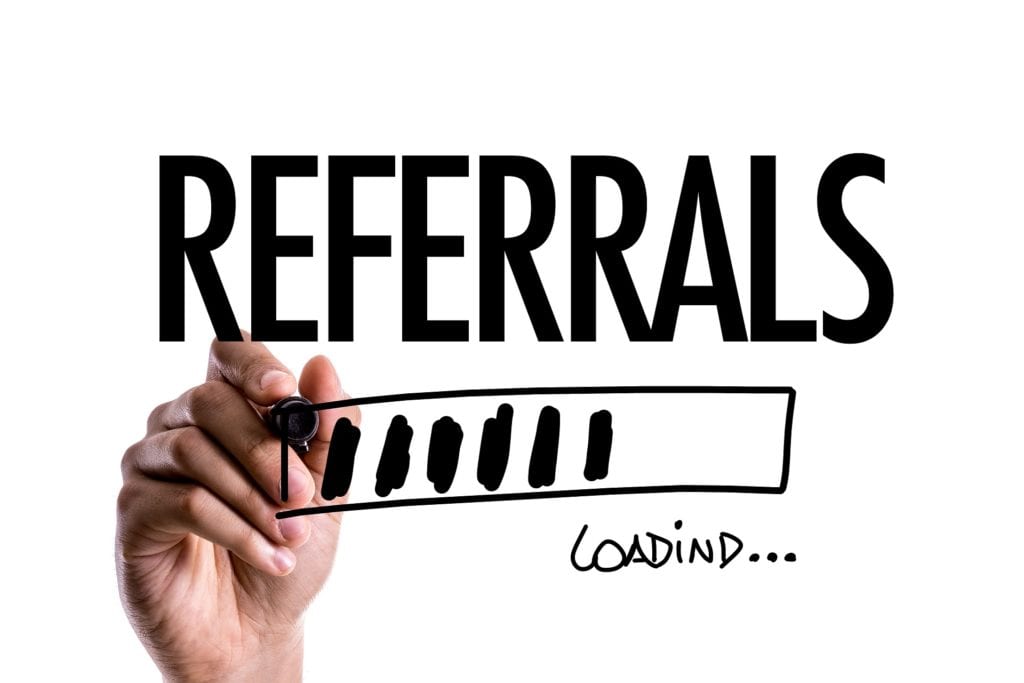As a real estate agent, getting a steady flow of new buyers and sellers is one of your top priorities. You’ve got to put new contacts into your sales funnel continually. You can do this online, via print marketing, in-person, by phone, and more. But what’s the best way to get real estate leads?
Real Estate Leads through Your Website
Real Estate Website with IDX
Your website is the best way to get real estate leads. It’s your digital business card with built-in perks, like your professional agent bio, certifications and awards, elegant property displays, property search, lead capture, and most importantly, a blog that can bring in endless leads when done right.
Your website is also where your branding begins. Your logo and colors will carry over into your other marketing materials like business cards, flyers, postcards, yard signs, etc. People do business with brands they recognize and trust.
One of the most significant parts of your website is its structure and how well it’s optimized for search engines. If you’re not sure about the architecture of a website, then this isn’t a DIY project; you’ll need to outsource the job to the pros.
To display properties on your website, which is your most critical element, you’ll need to get established with an IDX provider. IDX means International Data Exchange, which is where the listings on your website come from. Some of the available IDX providers include:
IDX Broker: IDXBroker is the largest IDX provider and offers a platform for elegant property displays in a variety of styles with lead capture.
The company offers the most extensive MLS coverage and a plethora of integrations and features, such as social media integration, highly customizable links, adjustable registration, saved and favorited searches, maps powered by MapQuest, and more.
Another perk to IDX Broker is that it offers free real estate market reports that you can use as a lead magnet on your landing pages.
Diverse Solutions: With IDX Solutions, you can index city and neighborhood pages, offer a full IDX search, set optional or flexible forced registration, saved searches and favorites, and lead capture tools designed for the purpose of converting your website visitors into viable leads.
iHomeFinder: For marketing, automation, technology, and the ability to organize and nurture leads efficiently turn to iHomeFinder.com. The IDX provider offers property display and search with customizable registration options but also offers options for a real estate website and hosting, drip campaigns, automated replies, guaranteed traffic, blog content, and more.
Showcase IDX: Showcase IDX focuses primarily on IDX search and results but also creates real estate listings pages and offers state-of-the-art mapping, as well as CRM tools, integrations, and apps.
Don’t skimp on setting up your website. If you’re not highly educated or experienced in website creation, layout, design, and search engine optimization, then outsource the job to professionals who can help you look and do your best online. Many real estate websites come with an IDX solution. Find the one that’s right for you.
Customized Content
Customized content on your website is the best way to get discovered online organically. Organic search results mean that your website was found through a search query, not through paid advertising like Facebook Ads or PPC. Organic content packs a powerful punch with search engine authority.
Evergreen content is content that doesn’t expire; it won’t go out of date. It will continue to draw in viewers as long as its valuable information.
Hyperlocal content focuses specifically on amenities such as dining and recreation in your service area. While these cater to a broader audience than buyers and sellers, it helps to raise brand awareness and establishes you as an expert in your area. People will remember your content and your brand and will likely turn to you when they’re ready to buy or sell.
The benefit of evergreen content, like buyer/seller blogs, community pages, and hyperlocal pieces, is that while it does take a while to build momentum, that content will continue to generate leads over time. The longer your content is online, and the more times it’s viewed, the higher it climbs in the search engine rankings, so it continues to produce results. This gives organic search an edge over paid advertising, which only produces results as long as the ad runs.
Content includes written text like blogs, newsletters, drip campaigns, memes, as well as images, and video.
To be most effective in creating valuable content, you’ll need to establish a content marketing plan. To create a content marketing plan, you’ll determine your campaign’s goals. You’ll then break those goals down into actionable tasks, who is responsible for them, and their timeline for completion. You’ll also track and measure as you go to determine the success of each piece of content.
Backlinks
Backlinks are when other relevant, high-ranking websites link back to yours because they found your content valuable and worth sharing. When these related websites link back to you, Google recognizes the kudos and gives your website a higher-ranking position.
Not only do backlinks give you search engine juice, but they are also direct referrals leading people to your website where you can convert them to leads.
Landing Pages and Lead Magnets
Landing pages are powerful tools in your digital marketing toolkit. A landing page, which is different from a standard page on your website, it’s your opportunity to capture the attention of your viewer and convince them why they should give you their email address or other contact information for permission marketing.
You can create compelling landing pages with lead magnets and lead capture using a service like LeadPages.com, a comprehensive lead generation platform with marketing tools.
Once you’ve caught a viewer’s attention with your landing page, you persuade them with an offer called a lead magnet.
A lead magnet can be anything your viewers will find valuable, such as a free home valuation (available through LeadPages.com, monthly market report (available through IDXBroker.com, an eBook, checklist, ultimate guide, or another downloadable item easily created using either the free or pro version of Canva.com.
You can even take one of your blog posts, format it, export it to a PDF, and use that as your lead magnet. Hyperlocal posts, such as Where to See Christmas Lights or Things to Do for Mother’s Day in your area, are also excellent draws for people wanting to know more about your service area. This is an excellent way to make extra use of an article on your blog.
Even if your website’s viewers are not currently buying or selling when they find your hyperlocal content, they, and Google, will remember that they found your offerings valuable.
Lead capture is another critical element to have in place on your website so that when the viewer responds favorably to your call to action, you can import and sort the contact accordingly. You can increase lead capture by using IDX Broker and LeadPages on your real estate website. Other lead capture services include OptinMonster.com, which offers a variety of pop-ups with customizable styles, features, and functions.
Using Social Media to Generate Leads
Social media is another powerful resource for getting real estate leads, and there are multiple ways to use social media for that goal.
Facebook Business Pages are a great place to get started. A Facebook business page will help you establish your brand online, provide contact information and a link back to your website, and include additional calls to action such as sending a message or requesting a showing.
Facebook Groups are another distinctive way to generate leads. Think about setting up a hyperlocal community page for your service area where you can share information about local amenities, restaurants, recreation, and more. You’ll be establishing yourself as an expert in your field while attracting potential buyers and sellers in the neighborhoods you service.
Facebook Ads is a way to take your Facebook presence to the next level by paying to have your content shown to a specific audience, which you demographically target for best results. You can also opt to pay for ads that will appear in Facebook Messenger.
Instagram is another tool real estate agents can use. Create free posts on your personal profile, create a business profile, or use the Facebook Ad Manager to create paid ads on Instagram.
Pinterest is an outstanding place to share images of properties as well as promoting your blog posts and articles. As with the other networks, there are free ways to grow your business on Pinterest, or you can pay for ad space.
YouTube, which has grown to become the world’s second-largest search engine, is the perfect place to share longer videos to educate your audience. Create tours of area parks, schools, shopping districts, neighborhood tours, tips such as preparing for a home inspection, and more.
TikTok is the new kid on the block and is ideal for sharing quick and easy tips and tricks via videos of 60 seconds or less for buyers and sellers.
LinkedIn isn’t as much for generating new leads as it is for establishing relationships with others in your industry that may make good referral partners.
You can also use social media platforms to host live stream events and virtual tours. Another way to maximize your online marketing endeavors is to harness the power of social media influencers who can help you raise brand awareness and get more leads.
Pay-Per-Click Marketing
Organic website traffic could take six months to a year or longer to build, whereas PPC or pay-per-click marketing, gets you immediately in front of the eyes of your desired audience.
Unlike publishing an ad in the newspaper or putting a commercial on the radio, advertising on the internet lets you get highly specific with demographic targeting. Demographic targeting lets you choose the age, gender, education, income, hobbies, interests, and other information of the people who see your ad. If they don’t meet the criteria, they don’t see the ad. This means your advertising dollars go farther. It also means that the people you do reach are more likely to become clients.
Pay-Per-Click marketing works on a bidding system based on keyword strategies. You bid against competing businesses. Then, your websites are scored by relativity and website authority. This data is coupled with the amount of money you’re willing to spend per click, which determines which ad wins the bid.
The more website authority you have and the more well-researched your keyword strategies are, the more successful you’ll be at generating leads with PPC.
Email Marketing
You may collect email addresses at open houses or special events like happy hour or housewarming parties, but what you do with them determines if you’ll be able to convert visitors to leads.
Email Drip Campaigns: For best results, you’ll sort your contacts into two main categories: buyers and sellers. Ideally, you’d then create one email campaign – or a series of emails – for each category.
It usually takes several touches before a contact moves into the next phase of your sales funnel, so sending a calculated stream of timely emails can guide that person along in their process.
For example, you may have a series of emails designed for buyers that include tips and information about the buying process, such as how to find the right real estate agent, the basics of a home mortgage loan, closing costs for buyers, what to expect in the closing process, and more. You can base these drip emails on blog posts you’ve previously published. The idea is to nurture your contacts until they become converted leads.
Email Newsletter: Regularly sent email newsletters also nurture contacts and get new leads. Consider sending things like a monthly real estate market report, hyperlocal content, and advertise your recent blog posts.
Lead Generation Software
Several companies specialize in lead generation for real estate agents. Some will qualify those leads for you, and some will teach you how to manage your leads. Some of the most popular real estate lead generation software companies include:
Market Leader: Market Leader gets its leads from its sister company, HouseValues.com. Because homeowners are already looking at home values, they’re likely preparing to sell and are good leads. Agents receive exclusive leads, a guaranteed number monthly, based on their zip code.
Boomtown: Boomtown obtains its leads by combining other lead generation methods such as a WordPress website, paid advertising, and email drip campaigns but does not include a lead magnet like a home valuation calculator.
BoldLeads: Bold Leads focuses solely on paid advertising, primarily with Facebook Ads. You pay the monthly service fee and then also pay for your ad costs. In return, they send those leads to a real estate agent CRM dashboard.
Zurple: A lead generation and marketing company, Zurple begins by providing a website for each service area you cover, which means you may have dozens of active websites. Then, through paid advertising that you can purchase through Zurple, you get lead capture. You can also capture leads from compatible sources like Zillow.
REDX: REDX is highly detailed in the types of leads you can purchase. Their categories include expired leads, FSBO leads, GeoLeads™, FRBO leads, and pre-foreclosure leads, all of which have proven to be successful. You can also access insights about the market, finances, home and building, and lifestyle.
Print Marketing Materials
For decades, print marketing materials were all that real estate agents had to market themselves and their properties. While the internet has exploded with endless ways to market your business online, print marketing materials are still a great way to get new leads. Printed products that real estate agents frequently use include:
- Business cards
- Greeting cards
- Door hangers
- Postcards
- Direct mailers
- Posters
- Brochures
- Flyers
- Presentation folders
- Yard signs
- Keychains
- Pens
In-Person Lead Generation
Getting leads online is excellent; attracting them with print materials is effective. But there’s nothing quite like making a great first impression in person. When you have a chance to connect with someone in line at the grocery store or while you’re out and about is priceless.
Pro tip: Wear a branded name tag whenever you leave the house or take it to the next level by wearing shirts that have your logo and website on them.
Here are some creative ways to generate leads in person:
Classic Door Knocking: Going door to door may seem old-fashioned and tedious, but it can be an effective way to meet people who may be interested in buying and selling either now or in the future. Door knocking is a free and personal way to market your business and build relationships. When you have an appointment in a neighborhood with a buyer or seller, spend a few minutes introducing yourself to the neighbors.
Host an Open House: Open houses have been a key element in marketing properties and getting new leads. And now, you’ve got technology on your side. From quick and easy lead capture through open house registration to automated follow-up through your CRM, you can use your open house to reach new potential buyers and sellers in the area.
Host Housewarming Parties: A brilliant way to get to meet your clients’ friends, family, and neighbors is to host a housewarming party after they close on their new home. It’s also a big way to show appreciation to your client. After checking to make sure they’re open to the idea, you’ll take care of everything from the guest list and invitations to the food and entertainment. A quick Google search on the topic produces ample results with ideas and suggestions for throwing a memorable real estate agent housewarming party.
Host a First-Time Buyer’s Workshop: Try hosting a free seminar for first-time buyers in which you preview the buying process, including pre-approval for the home mortgage loan, tips for first-time buyers, the steps to buying, closing costs, the closing process, and more.
Host a Happy Hour: Less intense and more casual than a workshop, a happy hour, although more expensive, is a fun way to attract home buyers. But just because it’s casual with cocktails doesn’t mean it’s an easy task to accomplish. You’ll pre-plan, send invites digitally and by snail mail, reach out to people by phone, create an event and share on social media, and promote with flyers. At the event, you give a brief presentation and then make yourself available to give free real estate advice.
Network: There are several ways to network with your peers in real estate, which is excellent for referrals, but it’s important to attend non-real estate-related networking events, too. Find out what opportunities there are in your community for networking and be an active participant. Have a plan for how you’ll follow up with the people you meet and greet.
Community Events: From arts and crafts to international festivals and everything in between, there are a plethora of community events that you can volunteer for, speak at, or just attend (wearing your name tag or branded shirt) to meet new people and to further your expertise about community events that may be of interest to buyers in your service area.
Meet with Your Top Contacts: Who are the people in your database who provide you the most value? Is it your referral partners in the industry? How about past clients who recommend you to others? Whoever your top contacts are, meet with them, if you can, three or four times during the year, even if it’s just to take them to lunch to show your gratitude. It’s good practice to take care of people who are supporting your business. They’ll continue to send you more.
Visit Yard Sales: It might sound super simple but visiting yard sales in your service area is another clever way to meet people who may be interested in buying or selling a home.
Seasonal Opportunities: Each holiday presents a chance to hand-deliver a gift with your business card. For example, make candy bags for Halloween, pies for Thanksgiving, small Christmas gifts – and there’s even a national Pi Day when agents celebrate by delivering pies to their best contacts and leads. These types of thoughtfulness are a great way to start building or continue nurturing leads.
Getting Leads by Phone
Cold Calling: It’s nobody’s favorite thing to pick up the phone and call an unsuspecting person to see if they’re interested in buying or selling soon. However, it’s both free and proven effective.
Warm Calls: Warm calls are when you reach out to someone in your database who has recently engaged with you, such as downloading a free offer but hasn’t expressed a direct interest in buying or selling.
Important Dates: You can add a personal touch by reaching out to people in your database by phone for important dates such as birthdays, wedding anniversaries, and the anniversary of when they bought their home.
Automated Text Messages: Statistics show that people see and respond to text messages quicker than emails or voicemail messages. There is a multitude of programs that integrate with your database to send triggered automated text messages to people who have given you their contact information.
Build Referral Networks
There are two types of referral networks that you can build: industry professionals and past clients.
Whether you’re building on past clients, industry peers, or both, start with Facebook groups where you can share valuable information, set up polls, create events, and allow your professional contacts to network with one another.
Client Referrals: To build a referral program with past clients, sort them in your database and put them on a drip campaign, such as tips for homeowners or how to increase the value of your home.
You can also send cards and gifts for special occasions like birthdays and anniversaries. Consider hosting customer appreciation events like happy hour, elaborate party, or other forms of entertainment that keeps clients talking about you.
And there’s the classic approach to getting referrals: offer incentives.
Of course, the simplest way to get referrals from past clients is to ask.
Industry Referrals: There are numerous professionals in the real estate industry with whom you can build a referral network, including lenders, attorneys, appraisers, contractors, handymen, moving companies, and more.
Real estate agents, especially those you meet out of town, make fantastic referral partners. Think about cross-promoting.
Facebook also has several groups designed for referrals so you can connect with hundreds of agents and industry professionals from around the world.
Other Ways to Get Real Estate Leads
Chamber of Commerce: By Joining your Chamber of Commerce, you’ll get many benefits, including becoming an active part of your community, such as fundraising efforts for schools and local non-profit organizations. You’ll encounter new opportunities for networking, learn from other agents and business owners, and establish yourself as a well-rooted authoritative figure in the community.
Podcast: Podcasts are another way to reach your audience. But what are your topics, and how do you know what to say? One way to make use of podcasts is by reading aloud one of your long-form blog posts of 2,000 words or more. That’s it. That’s all that’s required. And, it’s another way to extract benefits from a pre-existing article on your blog.
Engagements and Weddings: When a couple gets married, one of the first things they often do together is buy a house. Congratulate the new announcement and see how you might be of service.
New Births: Babies often prompt the purchase of a house, whether it’s a first-time buyer or a homeowner who needs to upsize. Help welcome the baby and offer your services to help the growing family in finding a home that fits.
Divorce filings: While divorces aren’t an occasion to congratulate or celebrate, they can definitely spawn the need to sell a home. Be respectful and use tact but reach out to people who are experiencing a divorce to see if you can help expedite their situation and alleviate stress.
Deaths: You’ll need extra sensitivity for generating these kinds of leads, but loved ones left behind don’t always want to keep a house that was owned by their deceased loved one. See if you can help remove that burden from them.
For Sale by Owner: Homeowners don’t always understand the risks of listing their house FSBO. Take the time to contact these sellers to educate them about the legal implications and the potential loss of thousands of dollars, far more than the cost of hiring a professional agent who can help them price, stage, market, and show the home to the right buyers.
For Rent by Owner: There are several reasons that a homeowner may feel like renting out their property might be a better option than selling. Offer your expertise and help them understand why selling could bring a much higher ROI faster than renting.
Expired Listings: Most real estate agents have a stipulation in their contract that the seller must allow the agent a specific amount of time, usually 90 days, before he or she can terminate the relationship and look for a new agent. When those listings expire, it’s your opportunity to step in and do the job that the other agent failed to do.
Absentee Owners: Absentee owners are those who own a property but do not live in it and do not actively manage it. While some people are quite content to be non-participating landlords, others may be teetering on the idea of cashing in on their investment. Direct mail seems to be the most lucrative way to contact absentee owners.
Distressed Homes: Another case where people may feel pressed to sell their home quickly is before a foreclosure, even if it means a short sale. When you learn that a homeowner is unable to make their mortgage payments, you can help them solve that problem by selling their house before they lose it.
The Bottom Line
There are dozens of ways to reach new buyers and sellers, but the best way to get real estate leads is through your real estate agent website infused with IDX, lead magnets like home valuation tools, and a blog that churns out consistent, high-quality content that can grow your business organically online.

